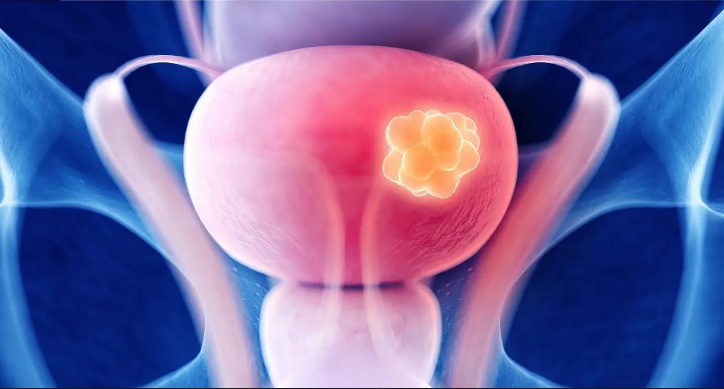First adenoviral vector-based gene therapy for high-risk Bacillus Calmette-Guérin unresponsive non-muscle invasive bladder cancer is approved by FDA
Jan 2023: The drug nadofaragene firadenovec-vncg (Adstiladrin, Ferring Pharmaceuticals) has been approved by the Food and Drug Administration for adult patients with high-risk, unresponsive non-muscle invasive bladder cancer (NMIBC) that has carcinoma in situ (CIS) with or without papillary tumours.
In Study CS-003 (NCT02773849), a multicenter, single-arm trial that included 157 patients with high-risk NMIBC and 98 of whom had CIS that could be examined for response, efficacy was assessed. Once every three months for up to 12 months, intolerable toxicity, or recurring high-grade NMIBC, patients received nadofaragene firadenovec-vncg 75 mL intravesical instillation (3 x 1011 viral particles/mL [vp/mL]). Patients were permitted to continue receiving nadofaragene firadenovec-vncg every three months as long as there was no high-grade recurrence.
Complete response (CR) at any time and durability of response were the main efficacy outcome metrics (DoR). In order to qualify as CR, a negative cystoscopy along with relevant TURBT, biopsies, and urine cytology was required. Five different bladder biopsies were taken at random from patients who were still in the CR after a year. The median DoR was 9.7 months (range: 3, 52+), the CR rate was 51% (95% CI: 41%, 61%), and 46% of responding patients remained in CR for at least a year.
Increased hyperglycemia, instillation site discharge, increased triglycerides, weariness, bladder spasm, micturition urgency, increased creatinine, hematuria, reduced phosphate, chills, dysuria, and pyrexia were the most frequent side effects (incidence 10%), as well as test abnormalities (>15%).
Using a urinary catheter, administer 75 mL of nadofaragene firadenovec-vncg into the bladder once every three months at a concentration of 3 x 1011 vp/mL. It is advised to take an anticholinergic as a premedication before each instillation.
View full prescribing information for Adstiladrin.
Susan Hau is a distinguished researcher in the field of cancer cell therapy, with a particular focus on T cell-based approaches and cancer vaccines. Her work spans several innovative treatment modalities, including CAR T-cell therapy, TIL (Tumor-Infiltrating Lymphocyte) therapy, and NK (Natural Killer) cell therapy.
Hau's expertise lies in cancer cell biology, where she has made significant contributions to understanding the complex interactions between immune cells and tumors.
Her research aims to enhance the efficacy of immunotherapies by manipulating the tumor microenvironment and exploring novel ways to activate and direct immune responses against cancer cells.
Throughout her career, Hau has collaborated with leading professors and researchers in the field of cancer treatment, both in the United States and China.
These international experiences have broadened her perspective and contributed to her innovative approach to cancer therapy development.
Hau's work is particularly focused on addressing the challenges of treating advanced and metastatic cancers. She has been involved in clinical trials evaluating the safety and efficacy of various immunotherapy approaches, including the promising Gamma Delta T cell therapy.
- Comments Closed
- January 5th, 2023





Bacillus Calmette-Guérin, Ferring Pharmaceuticals, nadofaragene firadenovec-vncg
CancerFax is the most trusted online platform dedicated to connecting individuals facing advanced-stage cancer with groundbreaking cell therapies.
Send your medical reports and get a free analysis.
🌟 Join us in the fight against cancer! 🌟
Привет,
CancerFax — это самая надежная онлайн-платформа, призванная предоставить людям, столкнувшимся с раком на поздних стадиях, доступ к революционным клеточным методам лечения.
Отправьте свои медицинские заключения и получите бесплатный анализ.
🌟 Присоединяйтесь к нам в борьбе с раком! 🌟